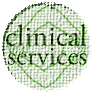MEALTIME PARTNERS WORKSHOP
Course Dates
October 29-31, 2021
Instructor: Suzanne Evans Morris, Ph.D.,
Location: 1124 Roberts Mountain Road
Faber, VA 22938
Phone: (434) 361-2285

Course Objectives
TOPICS
Workshop content is taught through the metaphor of weaving a tapestry. In creating a tapestry strands of a single color may be used to simultaneously create the focus of the woven painting, and the supporting or background colors for another area of the picture. There is a structure and pattern, yet a non-linear approach to content at the same time. For this reason it is inappropriate to give participants a linear time-based schedule. Each day will have a focus and information from previous days and future days will be woven into the topic being discussed. Treatment concepts and specific strategies for intervention will be introduced each day through connections with the feature topic
REGISTRATION
Cost
TOOLS FOR LEARNING
The workshop will be taught with a global view of the nature of oral feeding and mealtime challenges and the many ways in which a child and family can develop feeding skills within a positive mealtime environment. The teaching style reflects a belief that a wide variety of learning activities will enhance the capacity of the whole brain for learning. Varied activities will meet the needs of persons with a wide variety of learning styles. The following components will be included in the learning experience of the participants. Changes based on time and participant preferences may be made in this learning agenda.
Slides and Videotapes
A wide variety of audio-visual materials will be used to develop visual recognition of supportive and non-supportive mealtimes and the many reasons why children have difficulty with wanting to eat or in developing the sensory skills and oral feeding movements that support eating a diversified diet. The videos also demonstrate a variety of treatment techniques and concepts. Many of these videotapes are personally selected from the library of Suzanne Morris to address the specific issues of the workshop participants.
Child and Family Focused Discussions
Each workshop participant comes with the intention to focus on the needs and abilities of a specific child and family. Videos of the child's mealtime and playtime and written materials that describe and illustrate the child’s strengths and needs are sent to Suzanne Morris a month before the workshop. Participant learning styles and needs and the most important questions to address during the workshop are also submitted. This gives Suzanne the opportunity to become familiar with the child, family and therapist issues before the workshop begins. Opportunities are provided throughout the workshop for dialogues and discussions that support each participant’s ability to understand the issues and make relevant choices and decisions related to their child’s feeding and mealtime needs. Suggestions for home and therapy interventions are integrated into family care-giving routines, rather than listed as a set of separate exercises that must be done each day.
Written Materials
The books in the Mealtime Partners Starter Kit (i.e. Pre-Feeding Skills: A Comprehensive Resource for Mealtime Development, 2nd edition, Feeding with Love and Good Sense, and Happiness is a Choice) provide the basic reading materials for the workshop. Each participant is responsible for purchasing and reading the books prior to the workshop. Additional materials will be provided in a detailed workshop manual. This allows a greater proportion of the workshop time to be spent in observation and problem solving. It also enables the participant to efficiently review the workshop content after returning home.
Lecture
A minimal amount of formal lecture is included in the workshop. Concepts presented in the written materials are discussed and amplified through a combination of informal commentary, guided imagery, and audiovisual support. Participants are encouraged to participate in the discovery of the underlying principles of becoming a mealtime partner who supports discovery and learning in the child. This basic approach is the foundation upon which feeding skills are built.
Feeding and Mealtime Experiences
Normal and limiting movements of the body and mouth will be explored during a feeding activity. Self-discovery will allow participants the opportunity to observe primary problems, compensations and interaction with the feeder. Additional sessions may provide experience with the basic principles of positioning and handling.
Hemi-Sync®
Hemi-Sync will be incorporated into the program to provide a sense of bodily relaxation combined with a clear mental focus of attention for learning. The process uses specific sound patterns, presented stereophonically, to produce a balanced activity of both hemispheres of the brain. Hemi-Sync signals will be combined with soft background music during many sessions to help focus attention for learning and increase the ease with which concepts and skills are understood and applied. Additional tapes will be available during afternoon and evening breaks for participants who wish to use them to facilitate further study or relaxation.
Guided Imagery
Imagery will be utilized during the workshop to enhance learning and to allow a type of "hands-on" rehearsal of assessment and treatment approaches. Guided imagery allows the participant to create a multi-sensory environment for the learning process. Research has shown that concept learning, memorization, and rehearsal of motor skills is enhanced by the creation and manipulation of images in the mind.
Resource Libraries
The availability of several resource libraries will enable participants to personally direct their learning in areas of interest. A selection of books and journal articles will be available for browsing. A tape library contains a wide selection of music, and learning tapes. All materials may be checked out during the workshop. An equipment resource area encourages exploration of the wide variety of therapy-support materials available through the Mealtimes Catalog.
SCHEDULE
Friday
Registration is scheduled between 8:00 and 8:30 A.M. This is followed by the first full-day of the workshop. Participants are encouraged to arrive in the area Thursday evening so that they can rested for the workshop
Daily Schedule
Each day has a predictable structure for comfort and learning. The general schedule blocks for Friday and Sunday are as follows:
8:20
Arrive at New Visions House
8:30
Morning Session
12:00
Lunch and Afternoon Break
2:00
Afternoon Session
6:00
Afternoon Session Ends
Afternoon Break
Extended afternoon breaks provide opportunities for relaxing, enjoying our beautiful Blue Ridge Mountain outdoors, visiting and exploring with friends, and visiting our special resource rooms and digesting the morning workshop ideas. A lovely and nourishing lunch is held at the nearby Fallen Oak Bed & Breakfast.
Saturday Schedule
Our schedule on Saturday offers participants an extended period to relax or visit places of interest in the area. Our afternoon break will extend from 1:00 to 5:00. We will then gather at The New Visions House for a dinner picnic and continue our learning session until 8:30 p.m.







